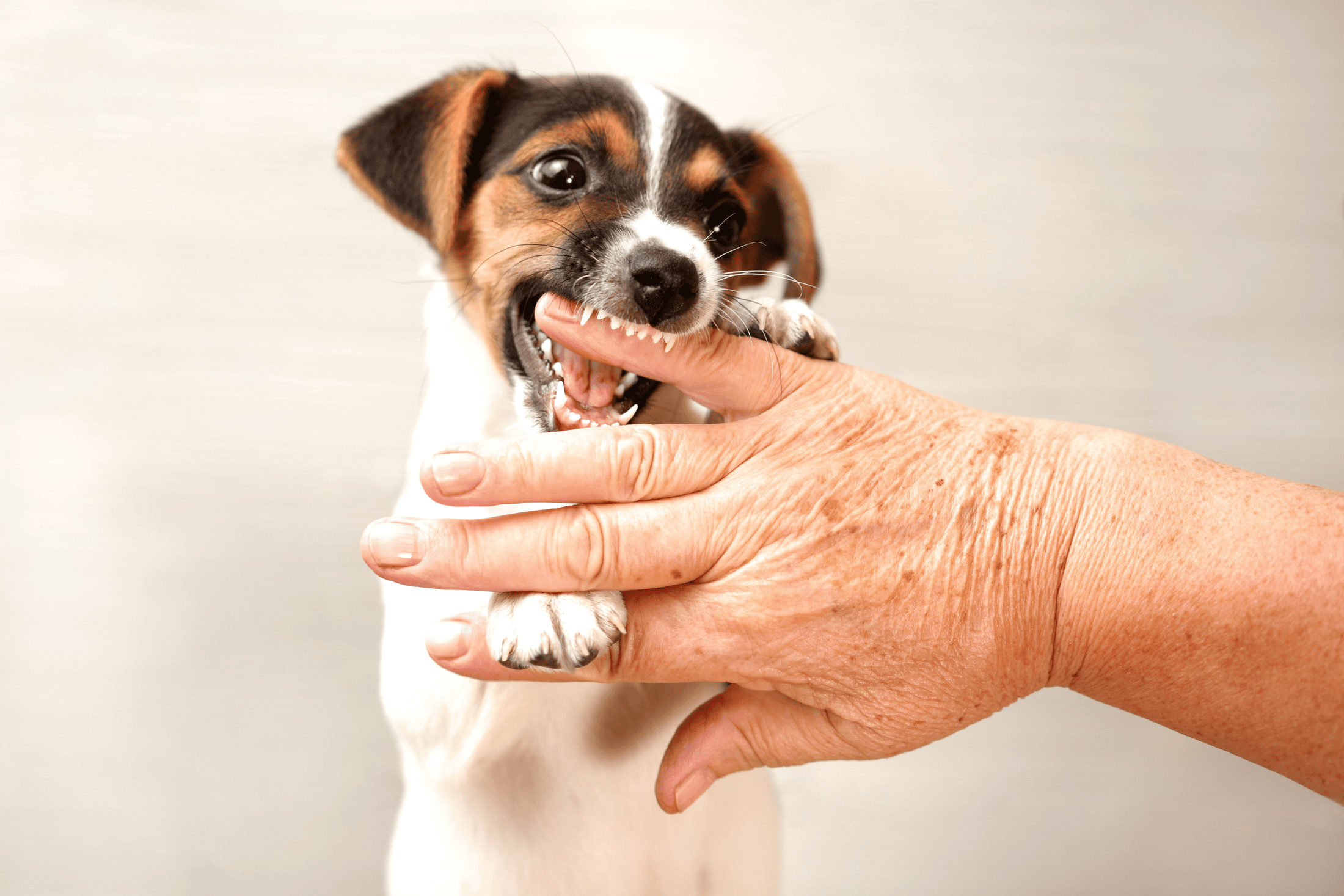 Has your adorable furball ever turned into a mini vampire during playtime? Mine too! As your pup explores the world, those sharp teeth become his tools for communication.
Has your adorable furball ever turned into a mini vampire during playtime? Mine too! As your pup explores the world, those sharp teeth become his tools for communication.
Let’s sink our teeth into why puppies bite, the importance of play biting, what bite inhibition is, and what I do to stop puppy biting.
Why Puppies Bite
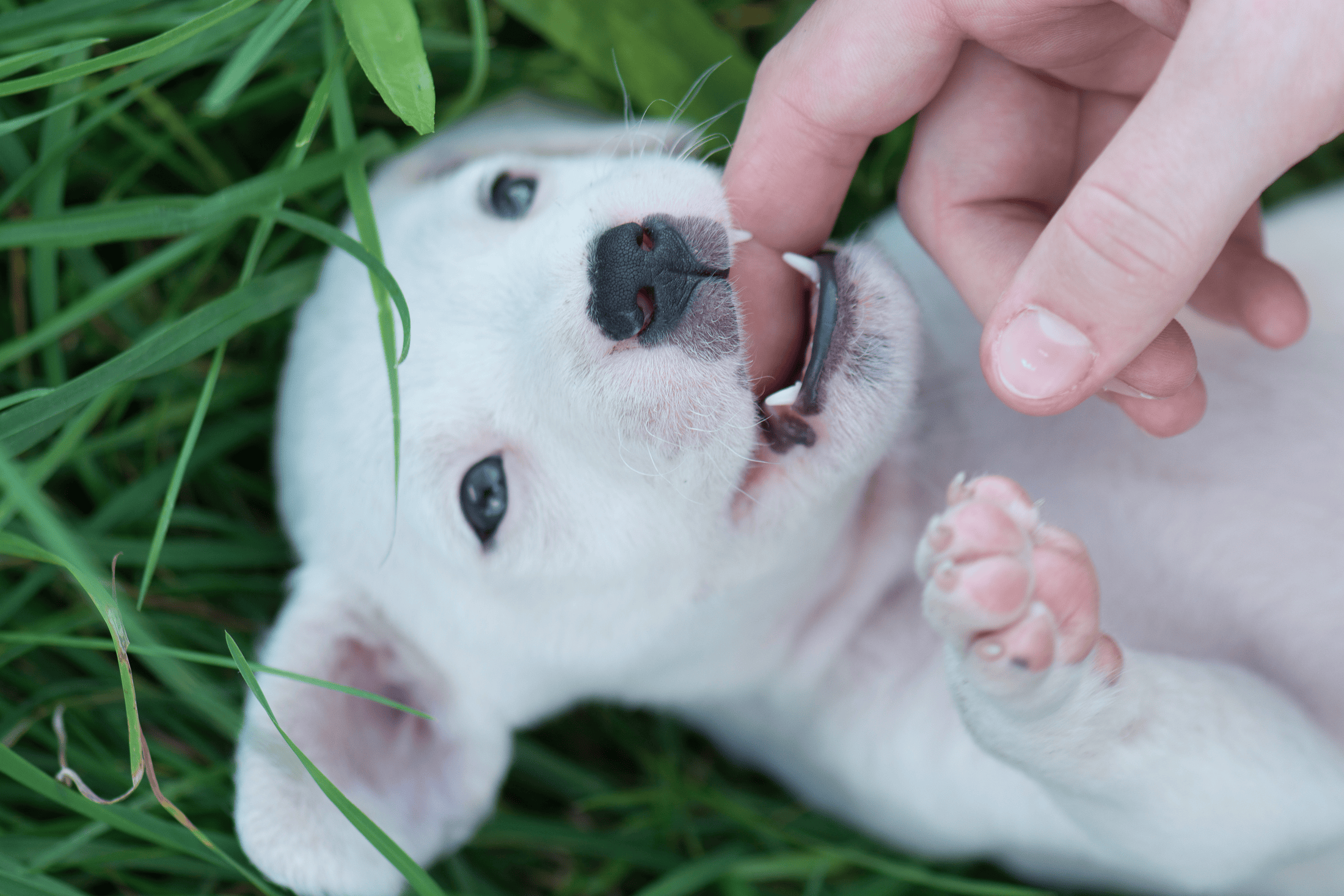
Ever wonder why puppies bite so much? Well, it’s a bit like their way of saying “hello” to the world!
When little pups are exploring, playing, or teething, they use their mouths to understand everything around them. This puppy biting behavior is entirely normal, especially in young puppies who are still learning the ropes.
But thankfully, there are ways to prevent some puppy bites. I make sure to provide chew toys, teach bite inhibition, and use positive methods to stop puppy biting.
I am also mindful that puppy nips are a normal and healthy part of puppy development. Patience, consistency, and understanding will be your greatest tools during this phase!
Understanding Puppy Biting Behavior
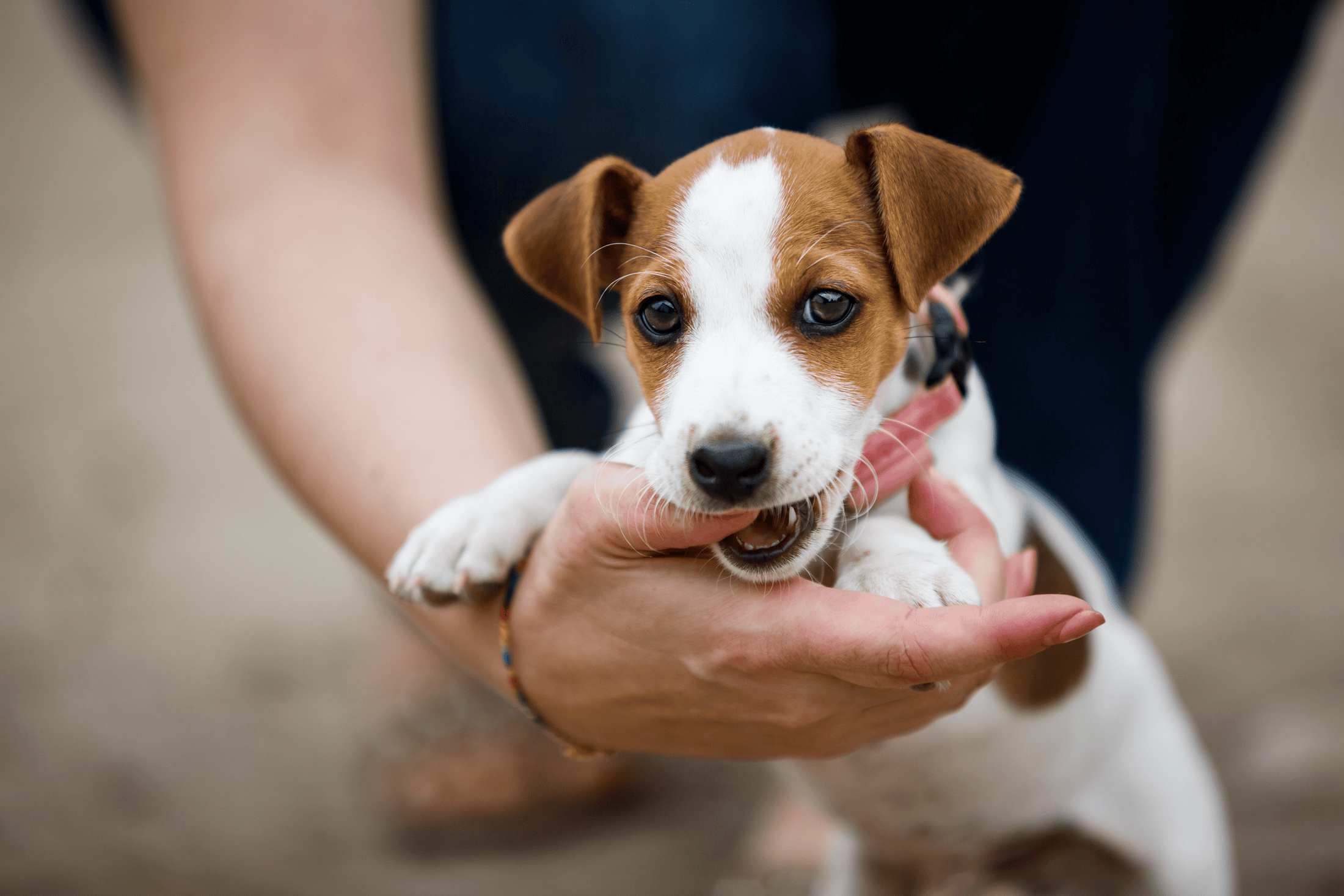
Puppies bite—sometimes gently, other times a bit too hard. It’s a totally normal part of their world, like kids playing tag.
It helps to be mindful that puppies don’t naturally know to not bite. They have a very strong instinct to chomp and munch on everything!
Positive reinforcement is the name of the game here. So, praise your dog when she plays gently. She’ll catch on! When the biting begins, stay calm and guide your pup with love and patience!
I make sure every dog I work with knows how to give soft bites. Whether they learn soft bites from humans or other dogs, puppies need to be shown how much pressure they can bite with.
Puppies learn about their environment and test their boundaries through play biting, nipping, and mouthing. As they grow, they learn soft bites, which is a skill called bite inhibition. We will get into that in a moment. But first, I like to grab some toys to gently redirect puppy bites.
How I Use Toys Protect Me From Puppy Biting
Puppies bite when exploring and having fun. But to keep your pup from nibbling on your fingers or toes, hand her an exciting toy.
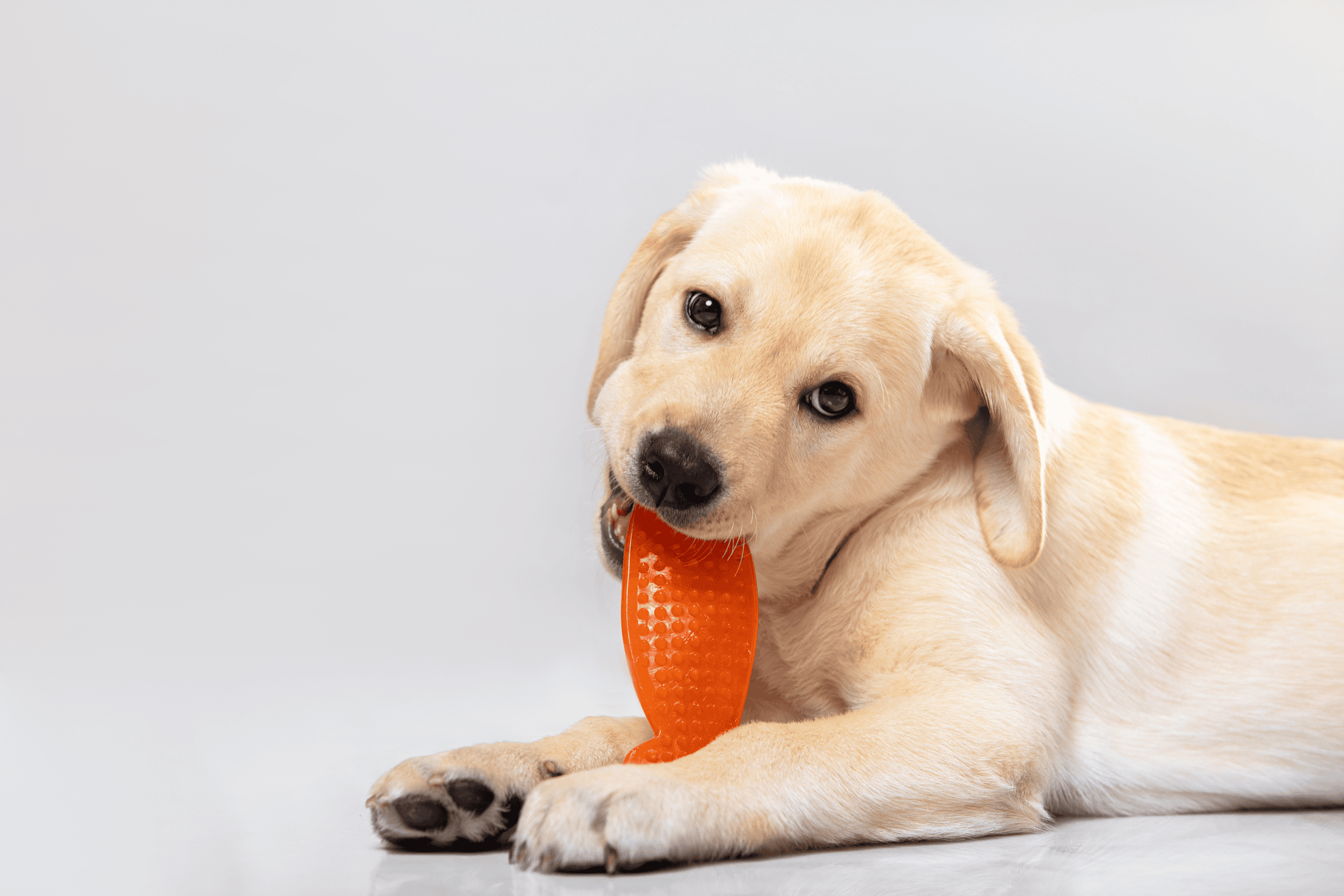
Toys are like magic—puppies can gnaw away and satisfy their urge to munch. And you are left free of teeth marks. It’s a win-win!
So, I like to keep a stash of chew toys handy. Whenever those sharp teeth go for my fingers, I swap in the toy. The pup gets to chew, and I get to keep my fingers intact!
Socialization and Play Biting
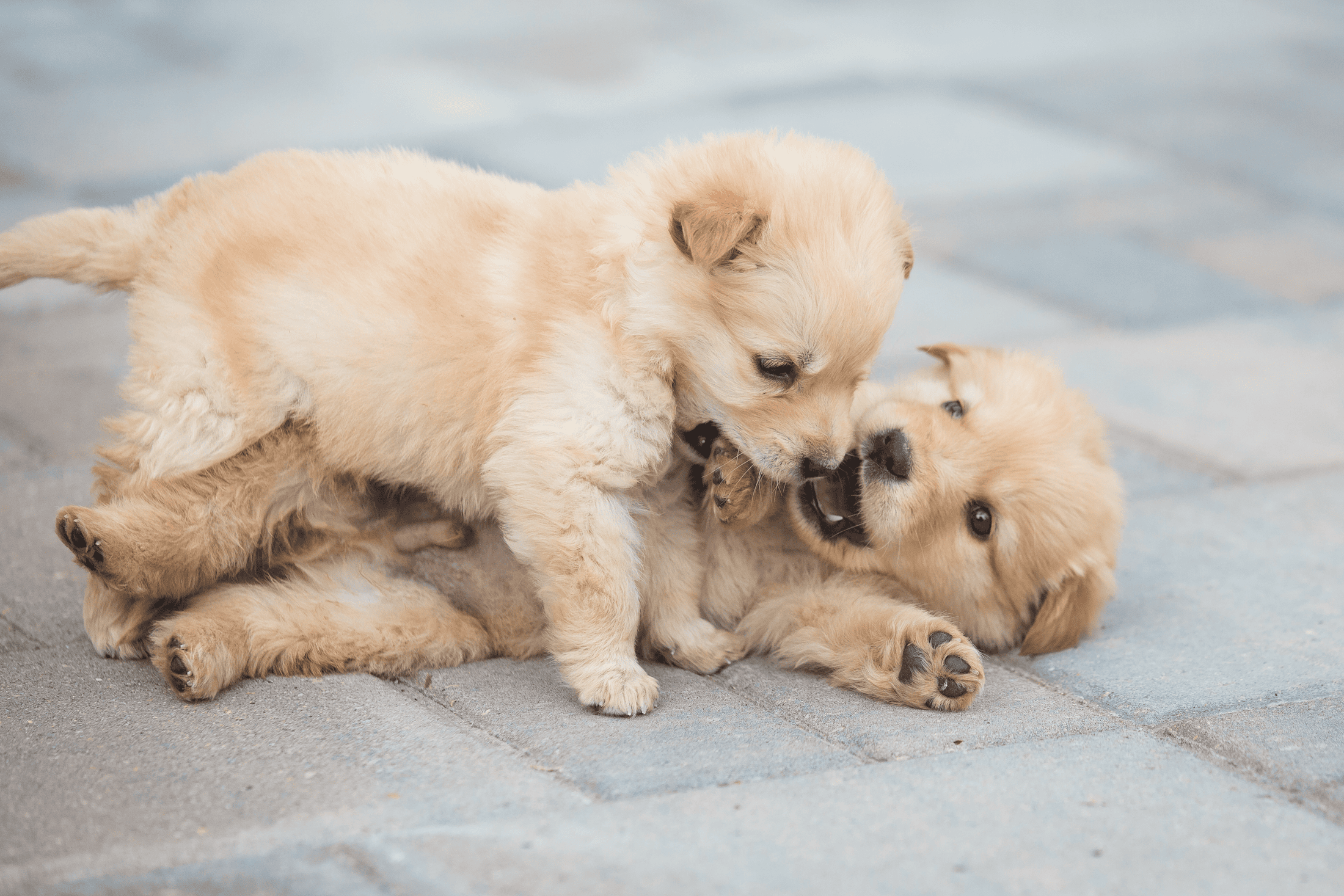
Puppy socialization is like school for your furry friend. This is how dogs learn vital lessons through play. And yes, that includes a bit of nibbling.
Play biting is how pups explore the world and interact with others. It’s completely normal behavior, but teaching boundaries is key.
Encourage good play manners and introduce chew toys to redirect those playful nips. If your pup goes to puppy classes, he will make friends with fellow furballs. Together, they will practice a lot of gentle biting.
Maybe your pup won’t go to puppy school. That’s completely fine! This is a personal choice, and I respect both decisions.
If your dog isn’t attending puppy school, she can still practice playing with other dogs. Maybe you already have another dog at home. If not, you could introduce your puppy to a neighbor dog. If you have friends or family with dogs, that’s also a great option.
The more the merrier! Dogs are social animals, and most love playing with other dogs. Your puppy can learn bite inhibition and so many other skills from playdates with other pups.
What is Bite Inhibition?
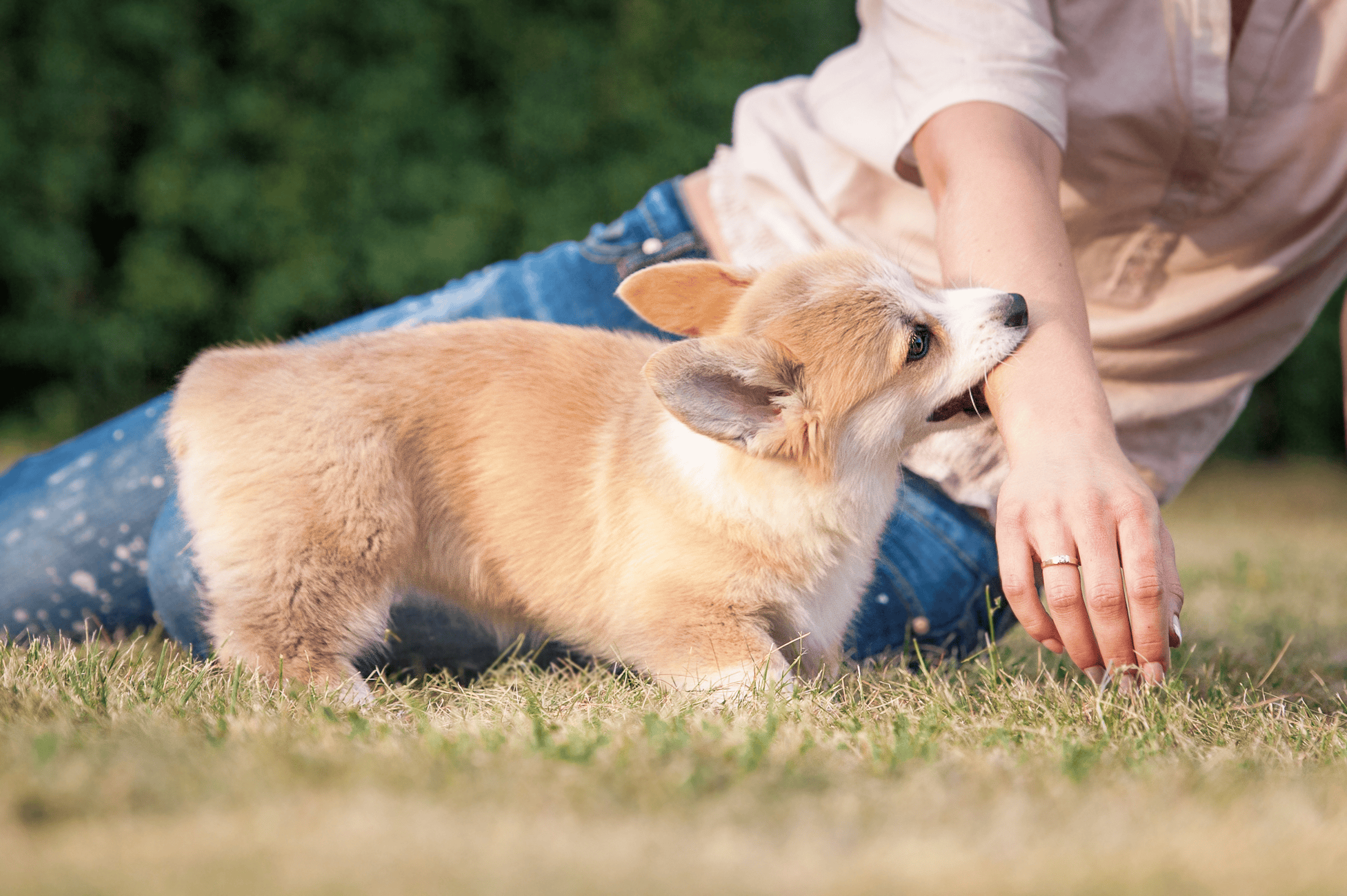
Bite inhibition is like teaching your puppy good manners for her mouth. It’s all about your puppy understanding that gentle mouthing is okay, but biting isn’t.
Puppies have to discover how much pressure they can use during play. When you say “ouch!” and stop playing when they bite too hard, they learn to control their bite force.
This way, they develop a soft bite and learn to play gently.
This is a really important skill to teach your puppy. Dogs will mouth you when they play. Teaching bite inhibition is the best way to ensure that your dog’s mouthing is always gentle.
Puppy bites don’t feel great, but this is the time to teach your dog soft bites. It’s much easier to do now than when you have an adult dog with adult teeth!
Here is what I did to help my puppy learn bite inhibition:
- Start Early: Begin as soon as possible. You want to give your puppy many chances to practice this skill while she still has puppy teeth.
- Use Chew Toys: Encourage biting items that aren’t your fingers.
- React to Biting: If your puppy nips too hard, yelp. That’s right! You can saw “Ow!” too if that feels right. The idea is getting your puppy’s attention and letting him know that his bite hurt.
- Pause Play: If biting persists, pause the game briefly. This teaches your puppy that biting ends the fun.
- Reward Gentle Play: Praise and give a treat for soft mouthing.
- Consistency is Key: Be consistent in your reactions to reinforce what you want.
Puppy Teething
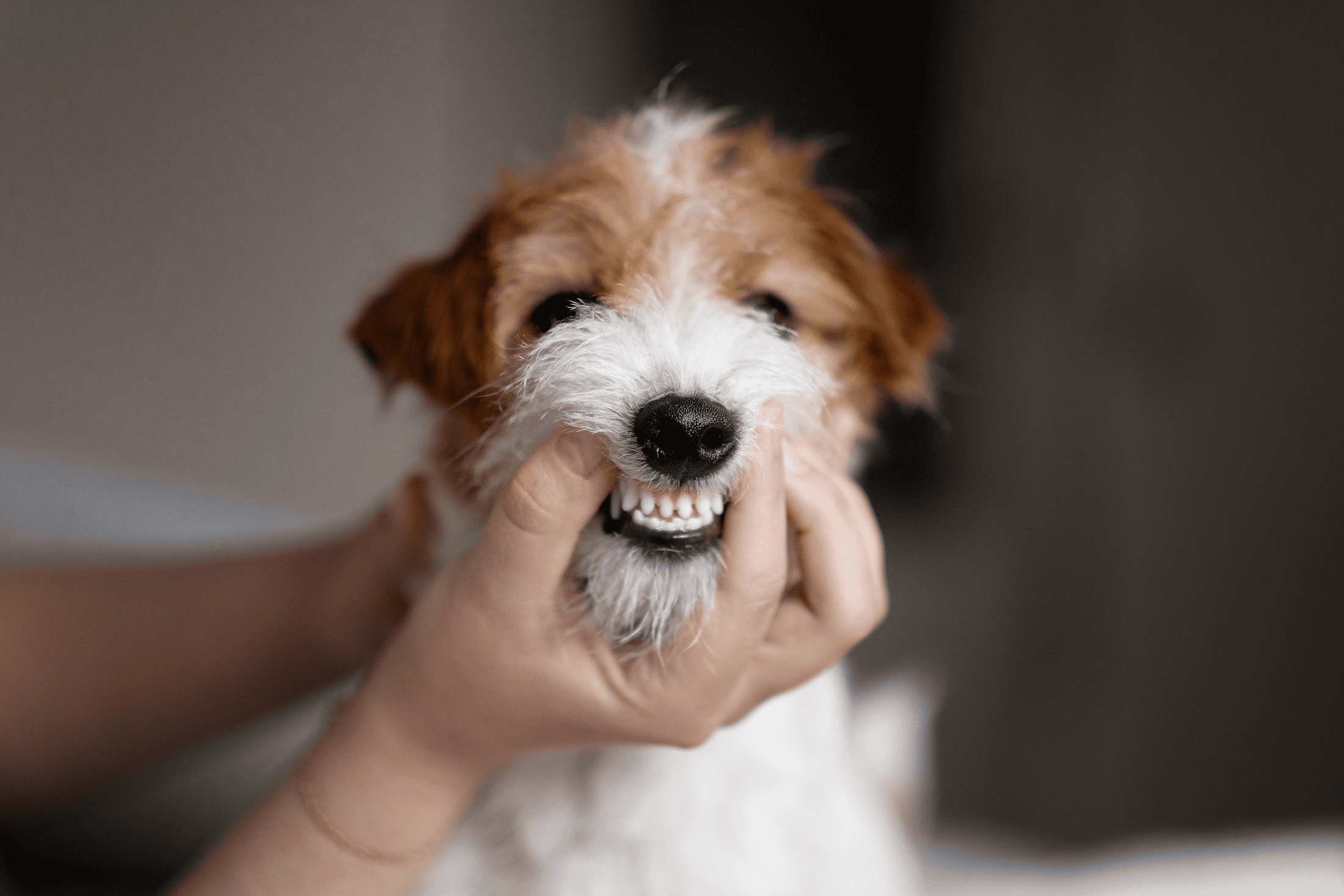
Puppy teething and biting go hand in hand. They are both side effects of getting a new set of pearly whites. Those baby teeth can be itchy and uncomfortable. This can make your pup crave some relief. Watch out, because your shoes or furniture might become a chewable target.
This is just a part of growing up. And your puppy will grow out of it! In the meantime, I recommend you offer chew toys. They’re kind of like pacifiers for puppies.
The gentle pressure from chewing helps soothe their sore gums and satisfies their natural urge to bite. So, what do I do when I catch a puppy chewing on shoes? I toss them a chew toy to save my sneakers!
You can also do some puppy-proofing to keep your shoes free from bite marks. You might want to store shoes in a closet with the door closed. Be mindful of other chewable objects, too. Even electrical cords can look appetizing to a teething puppy!
Positive Reinforcement and Avoiding Punishment
When your puppy is in full “bite everything” mode, it can be tempting to punish her. But positive reinforcement is my favorite way to stop puppy biting. My dog learned bite inhibition and so many other skills through positive reinforcement.
Instead of scolding your pup, encourage good behavior with treats and praise. Punishment can confuse and scare dogs. And nobody wants a scared pup! Dogs who were punished as puppies are more likely to develop aggressive behavior. And positive reinforcement has been shown to be a more effective method.
So, toss treats for good behavior, say “good job,” and watch the biting blues melt away. Your puppy will thank you.
Nipping and Biting in Adult Dogs
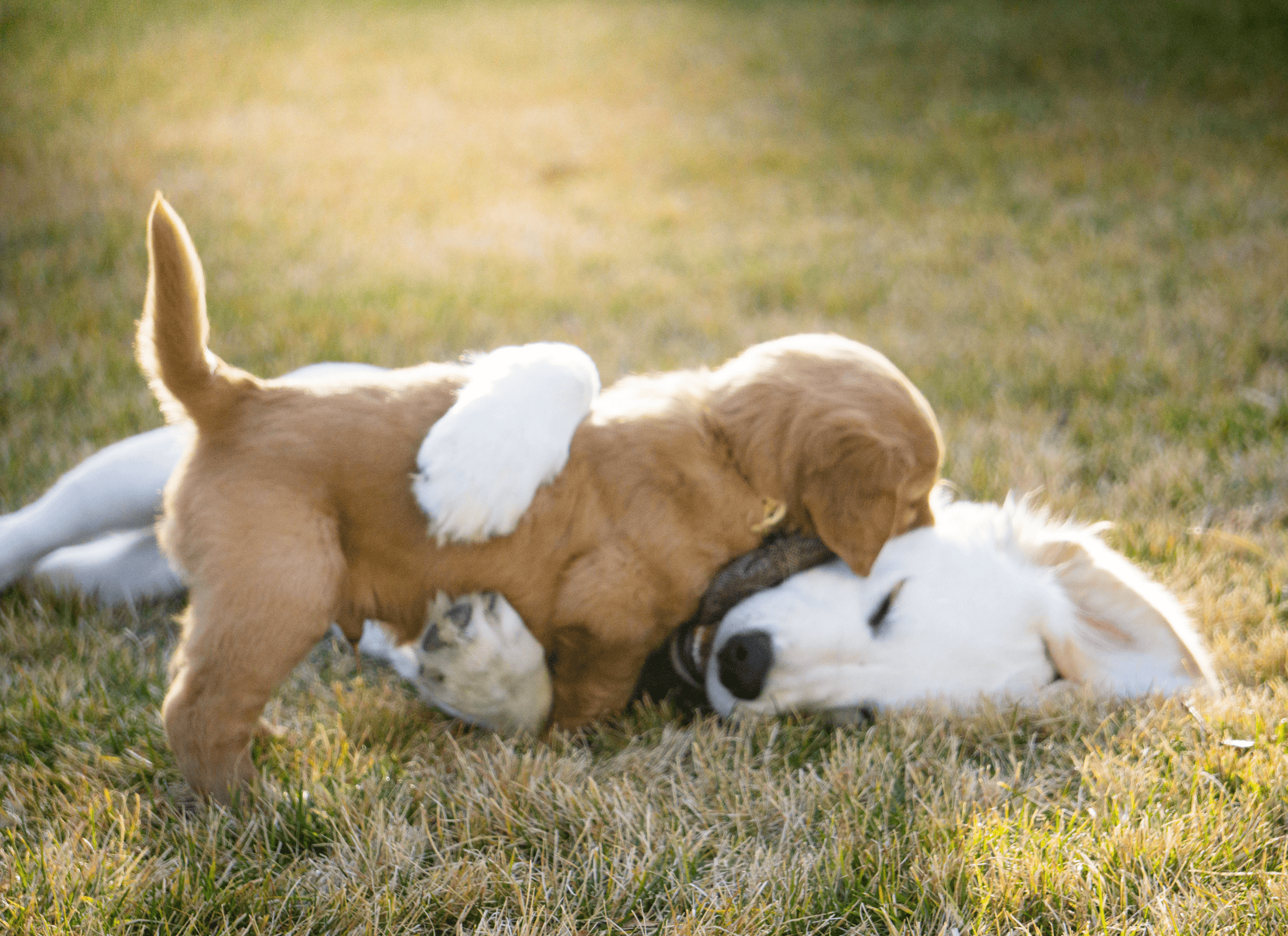
Just like puppies, adult dogs may nip or bite for various reasons. I’ve seen this behavior as playfulness, a desire for attention, or even an attempt to communicate something.
If your grown-up dog starts channeling her inner puppy, it’s good to be mindful. When I work with older dogs who never learned bite inhibition, I am cautious for a few reasons.
I am aware that adult teeth can cause a lot more damage to human skin than puppy teeth. I am also aware what stage of life the dog is in. While puppy biting and nipping is normal play behavior, this is less common in adult dogs.
When to Seek Professional Help
If your puppy doesn’t grow out of his biting behavior, I recommend seeing your veterinarian. You could also consult a certified applied animal behaviorist or a veterinary behaviorist. They can provide expert guidance tailored to your puppy’s unique needs.
Final Thoughts
Navigating puppy biting will take patience, consistency, and a gentle approach to training.
I also have a collection of free videos that you can refer to. In these videos, you can see me in action with some dogs I’ve worked with. Watch how I address puppy biting!
PS- Coming soon! My new dog training book for kids will be released soon. Follow along with Super Roxy as she teaches kids how to train their super-dogs! If you are interested in joining our review team in exchange for a free copy of the book, please contact us at [email protected]






